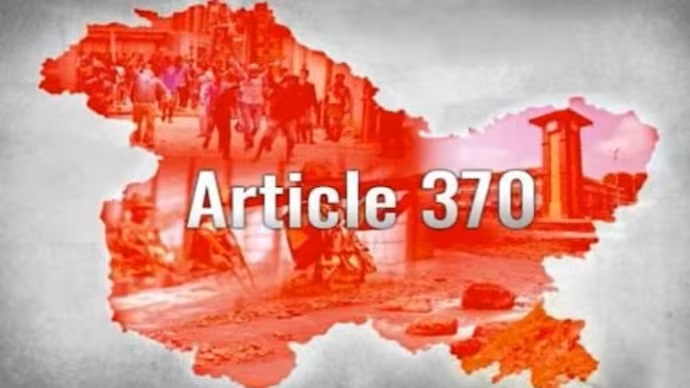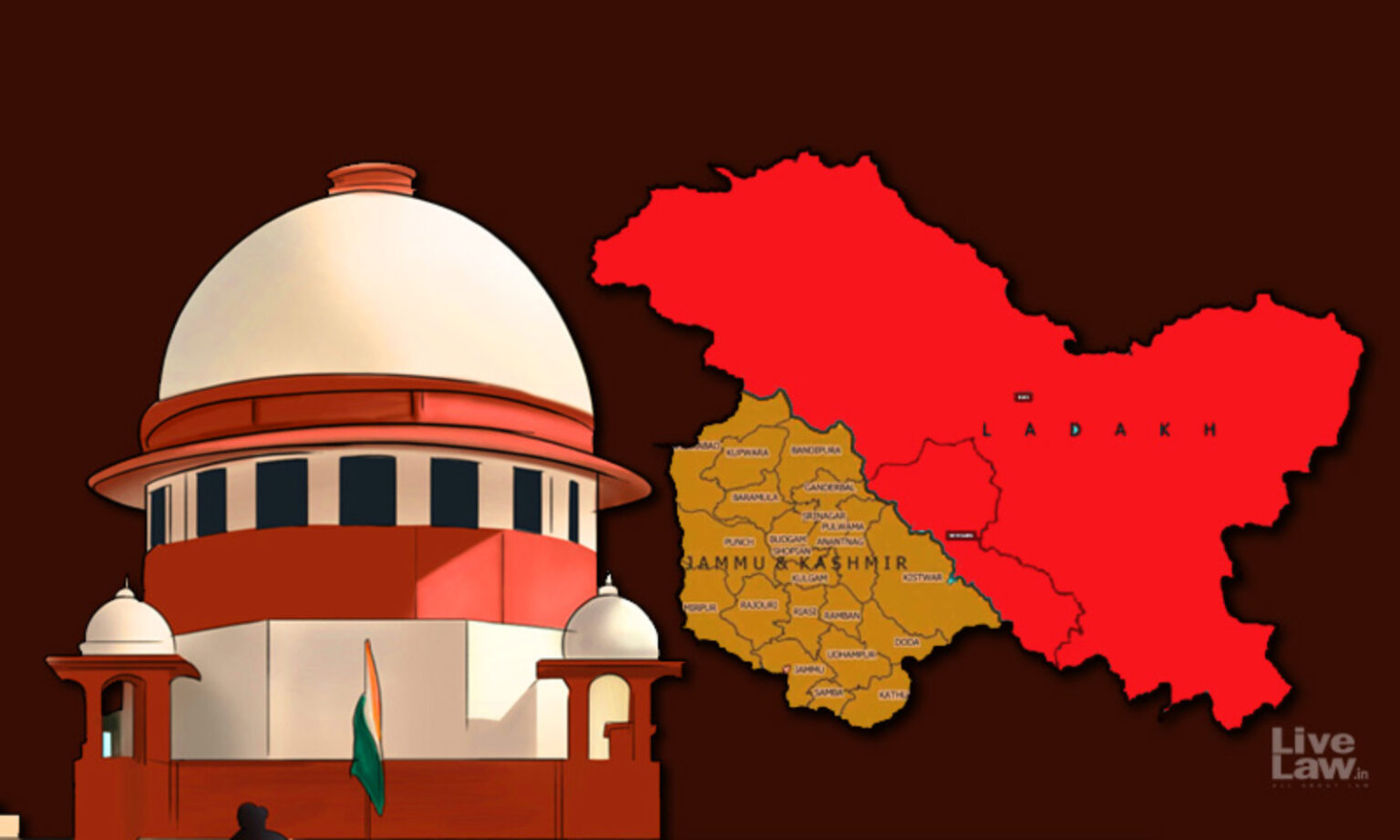The Supreme Court has announced that starting from August 2, it will hear petitions challenging the revocation of Article 370 in Jammu and Kashmir and the division of the state into two Union Territories on a day-to-day basis excluding Monday and Friday. Article 370 petitions were last addressed in March 2020.

During the proceedings on Tuesday, the five-judge constitution bench comprising Chief Justice of India (CJI) DY Chandrachud, along with Justices Sanjay Kishan Kaul, Sanjiv Khanna, BR Gavai, and Surya Kant fixed a deadline of July 27 and instructed all parties involved to submit all documents, compilations, and written submissions. The issue surrounding the constitutional validity of the abrogation of Article 370 has been pending for over 3 years.
According to the order, the hearing of the petitions by the constitution bench will begin at 10:30 am on August 2 and will continue daily, except for Mondays and Fridays, which are considered miscellaneous days.
The Supreme Court has appointed advocates S Prasanna and Kanu Agarwal as nodal counsels to prepare common convenience compilations concerning the case. The Chief Justice of India (CJI) emphasised that the court would not exclude anyone from the proceedings regarding implements, but also mentioned the need to allocate and manage time effectively.
During the hearing, Solicitor General Tushar Mehta informed the court that the central government has submitted an additional affidavit stating its perspective on developments subsequent to the abrogation of Article 370. He clarified that this affidavit would not have any impact on the constitutional question at hand and would not be relied upon for that purpose.
On August 5, 2019, the Central government revoked the special status of Jammu and Kashmir that was granted under Article 370 of the Indian Constitution which also resulted in the bifurcation of the region into two separate Union territories.
Statement by Union Government and Centre
The Union government has stated that it will not rely on the contents of the affidavit it filed the previous day to present the situation in Jammu and Kashmir after the nullification of Article 370.
In its statement to the court on Monday, the government asserted that the nullification has resulted in unprecedented development, progress, security, and stability in the region. It further claimed that life has returned to normalcy after three decades of turmoil.
The government defended the 2019 presidential order that revoked the special constitutional status of Jammu and Kashmir and divided the state into two Union territories. In its affidavit, it argued that the nullification of Article 370 contributed to the dismantling of the terrorist network, and incidents of stone pelting and street violence have now become a thing of the past.
It further states that schools, colleges, and universities in Jammu and Kashmir have been functioning smoothly without any strikes over the past three years. It also mentions that the earlier practice of strikes and bandhs is now in the past.
The affidavit also points out that participation in sporting activities has been remarkable, with a reported 6 million individuals engaging in sports during the 2022-23 period. The Centre contends that these facts demonstrate the positive impact of the constitutional changes implemented in 2019.
Arguments of the petitioners:
Several petitioners have raised different arguments in relation to the abrogation of Article 370 in Jammu and Kashmir. Some have argued that the consent of J&K’s erstwhile constituent assembly was necessary for such an abrogation. In contrast, others have questioned the validity of the President’s rule that was in place at the time.
Certain pleas have referred to J&K’s Instrument of Accession with India, while others have highlighted a previous ruling of the Supreme Court in 2018, which recognized Article 370 as having acquired a status of permanence.
Many petitions have challenged the Jammu and Kashmir State Reorganization Act, which resulted in the state’s bifurcation into two Union Territories, effective from October 30, 2019.













